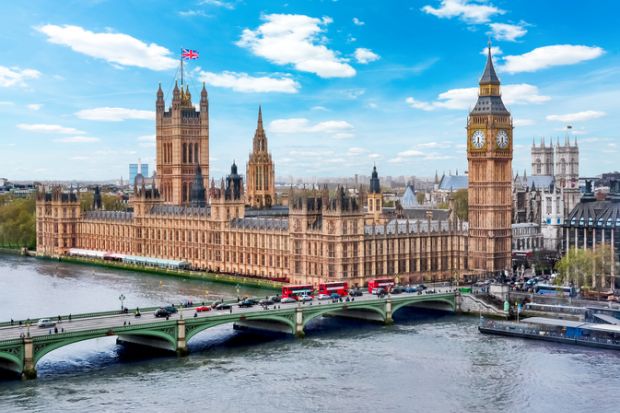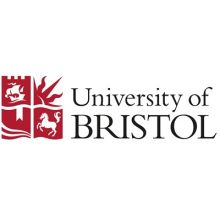England’s universities minister has faced calls from Conservative MPs to intervene and say “enough is enough” in the case of University of Bristol professor David Miller, who is being investigated by the institution over comments on Israel.
Michelle Donelan was challenged on the case during an Education Select Committee hearing.
Jewish students voiced their concern after Professor Miller, a professor of political sociology, “used a slide in one of his lectures linking UK communal organisations to a Zionist movement which he claimed was part of ‘five pillars of Islamophobia’”, the Jewish Chronicle has reported.
In response to the complaints, Professor Miller is also reported to have subsequently told the publication that “Jewish students on British campuses” are “being used as political pawns” by Israel.
Bristol said in March that it had started an investigation.
Robert Halfon, the Conservative MP who chairs the committee, said he had written a letter to Bristol saying that it “cares nothing for the welfare of its Jewish students” and “is making it a hostile environment for Jewish students”.
He said that the behaviour of the Bristol management and vice-chancellor, Hugh Brady, was “pretty appalling given what this academic has said”.
Ms Donelan said that Bristol had signed up to using the International Holocaust Remembrance Alliance definition of antisemitism – as the government is pressing all universities to do – which “highlights the fact that’s not the panacea to addressing this issue”.
“In regards to specific cases, the government doesn’t comment,” she continued. “There’s an investigation going on in Bristol and I believe it’s still live.”
Ms Donelan said reports about the case were “extremely concerning” and that she would “urge” the university to focus on the language used about “current students”, because universities “need to be welcoming institutions for everybody”.
Mr Halfon asked her: “Why would you not intervene to deal with this and tell Bristol, the vice-chancellor, that enough is enough and that we’re not living in 1930s Germany and they should deal with this problem and make sure Bristol University is not a hostile environment for Jewish students?”
Ms Donelan replied: “Universities in this country are autonomous…I am awaiting the conclusions of the review, after which I will, indeed, speak to the vice-chancellor.”
Mr Halfon said “if you can’t intervene…then it’s just words” and that “surely you should look at things like funding”.
Another Conservative MP on the committee, Jonathan Gullis, called University of Warwick vice-chancellor Stuart Croft “the biggest embarrassment to students at his university” over his handling of complaints about a Warwick professor’s comments on antisemitism in the Labour party.
“We need to go further than just fining. We need to start sacking people,” said Mr Gullis.
Ms Donelan was also asked about the government’s decision not to allow any further reopening of universities before 17 May.
She highlighted the importance of the government’s “road map” on Covid reopenings across society and said “anything with a slight risk could topple the whole thing over”.
With students on practical courses already back in face-to-face teaching and needing to complete their courses, further university returns “might have threatened the graduation of some of those students” on such courses, she added.
Ms Donelan was also asked whether the government wanted to introduce a minimum entry requirement for universities, an idea it plans to consult on.
“My view is we do need to look at this area,” said Ms Donelan, highlighting concerns about dropout rates.
She said that the consultation would include “what exemptions would be needed” to ensure any threshold did not prevent mature students from upskilling or reskilling, for example.
There was also a need to look at “making sure there are opportunities and options available for students that may need to get other qualifications before entering higher education”, Ms Donelan said.
Times Higher Education has reported on suggestions that the government could potentially set an entry bar using a requirement for GCSE maths and English, rather than using grades at A level and equivalent qualifications.
The government has not “fixed this policy” and does genuinely want to consult, Ms Donelan said.
Register to continue
Why register?
- Registration is free and only takes a moment
- Once registered, you can read 3 articles a month
- Sign up for our newsletter
Subscribe
Or subscribe for unlimited access to:
- Unlimited access to news, views, insights & reviews
- Digital editions
- Digital access to THE’s university and college rankings analysis
Already registered or a current subscriber? Login









